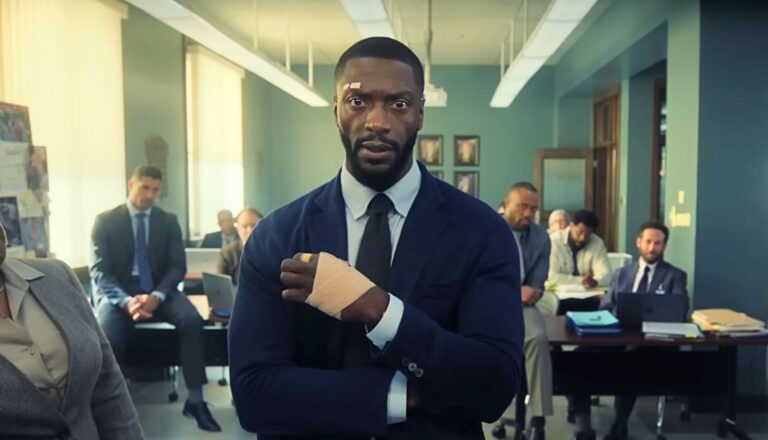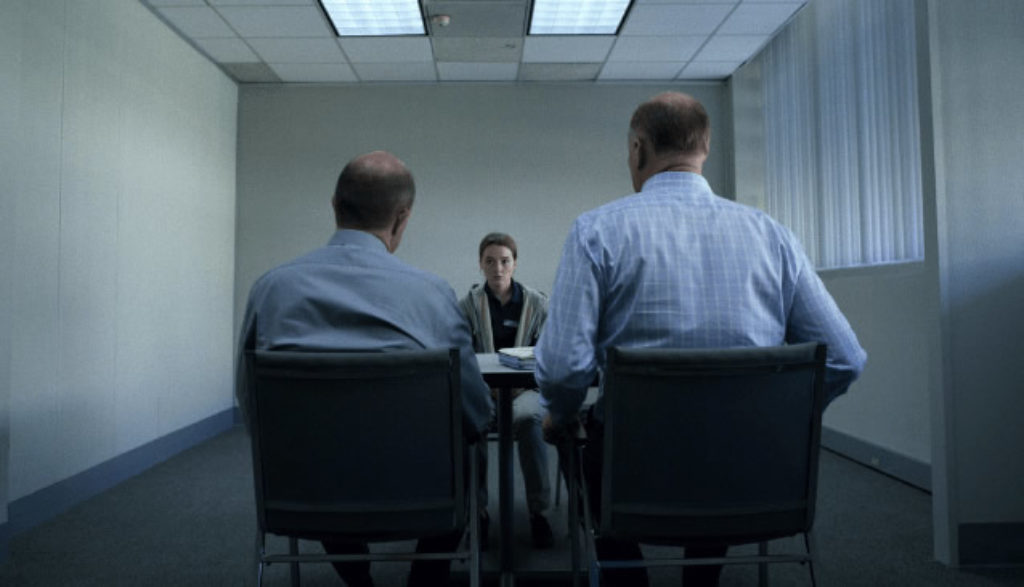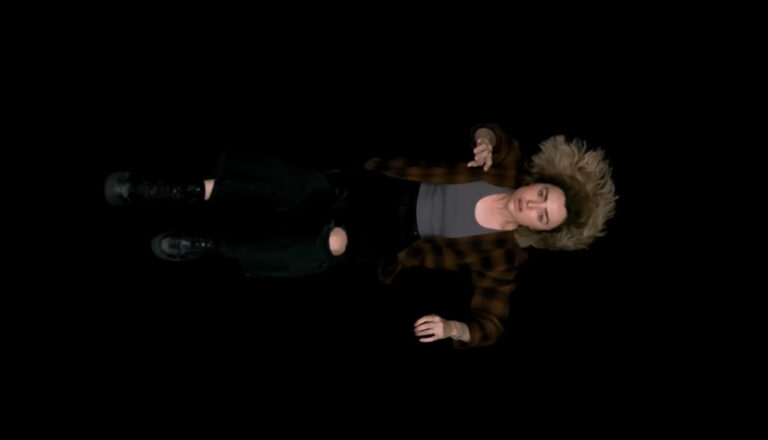
Cross
Though it’s compelling, the content concerns in Prime Video’s ‘Cross’ might be enough to cross it off your watch list.

The phrase “adding insult to injury” is as cliché as clichés get. And when we use it, we risk minimizing the meaning behind it.
But Marie Adler knows that, behind that cliché, lurks an unimaginable horror.
Marie was raped in her apartment in 2008: She remembers how he tied her with her own shoelaces, blindfolded her, threatened her with a knife. How she managed to cut herself free and finally call for help.
But when she told the police, they doubted her story. Wait, did you say he wore a sweater or a hoodie? Did you cut yourself loose before or after? Why no forced entry? Why did the rapist tie you up with your own shoelaces and then leave them at the scene? She doesn’t know. She can’t remember. Her stories are inconsistent and, as the inconsistencies pile up, the authorities grow more skeptical. Finally, they encourage her (bully her?) to recant.
It was the ultimate insult to the ultimate injury. To be raped and not be believed. To tell the truth, and then be forced to lie because the truth can’t be believed.
Three years later, a rash of rapes breaks out across Colorado. The assaults sound remarkably familiar to Marie’s experience—the experience that, officially, never happened. But two detectives are on the trail, and they’re beginning to put the pieces together.
The injury Marie suffered will never go away. It’s a part of her now, body, mind and spirit. She’ll always feel the insult, too. No apology will ever completely expunge that extra pain.
But perhaps detectives Grace Rasmussen and Karen Duvall can bring Marie’s attacker to justice and protect other young women. And even if an apology doesn’t cure all, at least it would acknowledge the wrongs.
Unbelievable is based on a Pulitzer Prize-winning story by T. Christian Miller and Ken Armstrong, which itself unpacked real events that took place in Washington and Colorado. This is, in other words, a story rooted in fact—and all the more harrowing because of it.
Is the Netflix miniseries brutal? Sexual? Horrific? Of course. The story the miniseries chooses to tell demands it. We can, perhaps, ask whether a show—ostensibly made to “entertain”—should predicate itself on such a story. But if such a story is to be told, we should be cautious about condemning it for being too graphic: To downplay those terrible elements seems, in a sense, to diminish the terrible facts.
And unlike dramas that depict terrible deeds in salacious and tawdry detail—seeming to want to simultaneously condemn those acts while still using them to attract eyeballs—Unbelievable doesn’t feel intentionally prurient.
But it does feel horrific.
By definition, Unbelievable is not family viewing. Terrible crimes beget terrible reactions, and we see plenty of both. While we don’t “see” much in the show’s repeated depictions of sexual assault, we feel plenty: The confusion, the horror, the ultimate violation. The aftermath, in some ways, is even worse: Marie is forced to repeat her story, in graphic detail, again and again in the opening episode—repetition that can almost feel, to her and to the viewer, like another assault. Viewers see plenty of skin, too—though mostly done less to titillate and more to emphasize vulnerability, injury and misplaced shame. Language can be coarse and obscene, as well.
Unbelievable tells a gripping story and tells it well. Unfortunately, it shows us and forces us to feel it, too. It forces us to put ourselves in Marie’s (and other victims’) shoes and experience, in some dim, distant way, an act that Marie would rather forget. And we, like she, relive it again. Again.
“I don’t really like to think about it,” Marie says at one point. Who could blame her? And if we choose to step into her painful story—one that she herself would rather forget—we must ask ourselves an important question: Why?
Marie, an older teen living at some apartments set aside for at-risk youth, reports that she was raped. Police and authorities are initially sympathetic but, as they make Marie tell her story again and again, they notice inconsistencies. Marie’s foster mother, Judith, secretly reports to Detective Parker (who’s running the case) that Marie’s been acting out lately and engaging in “look at me” behavior. All that, combined with Marie’s troubled childhood, throw more doubt on the case. When authorities call Marie in, they suggest that perhaps she made the whole thing up.
We see Marie’s rape repeatedly. The scene is always in deep shadow, hiding explicit nudity. But context and movement (along with a gloved hand pressing against bare flesh) make it clear what’s happening. Marie says that her attacker threatened to kill her if she told anyone. In the aftermath, Marie is sometimes in a state of partial or full undress: We see her bare back and shoulders at times. And when she sits on a toilet, we see her nude from the waist town, but from the side. She’s made to describe the act several times in graphic detail, and medical examinations are performed with clinical but unsparing attention. Marie also wears skin-revealing outfits and, in flashback, dances sultrily on top of a picnic table. (Her stepmother tells her to stop it, telling her it’s inappropriate and that there are “children present.”) During the rape, Marie focuses on a picture of herself in a bikini on the beach. Marie’s ex-boyfriend intimates that they were sexually active. The rapist used a condom, and we see its wrapper.
Her stories of the rape are inconsistent: Detectives accuse her of lying, and eventually she begins to doubt her own story—telling police that she’s “pretty sure” it happened and speculating whether it might’ve been a dream or hallucination. Eventually she does lie—telling police that it never happened—in an effort to recover a sense of normalcy.
We hear a bit about Marie’s traumatic childhood, learning that both her natural parents and some foster ones were “abusive”. Detectives are shocked when they read details of her past. “Feeding a little girl dog food?” one says. “Who does that?” In the aftermath, Marie steps out on a bridge rail, apparently considering suicide. After nurses inspect her body for signs of rape, she’s given a “morning after” pill, drugs to battle potential sexually transmitted diseases and told that, if she has “thoughts of killing yourself,” to call the number listed on the instructions. We see her wiping her privates with tissue paper after the inspection. Characters say the f-word once. They also utter “p–s”. God’s and Jesus’ name are both abused, the latter four times.

Paul Asay has been part of the Plugged In staff since 2007, watching and reviewing roughly 15 quintillion movies and television shows. He’s written for a number of other publications, too, including Time, The Washington Post and Christianity Today. The author of several books, Paul loves to find spirituality in unexpected places, including popular entertainment, and he loves all things superhero. His vices include James Bond films, Mountain Dew and terrible B-grade movies. He’s married, has two children and a neurotic dog, runs marathons on occasion and hopes to someday own his own tuxedo. Feel free to follow him on Twitter @AsayPaul.

Though it’s compelling, the content concerns in Prime Video’s ‘Cross’ might be enough to cross it off your watch list.

‘The ‘Burbs’ is Peacock’s attempt to adapt the 1989 movie of the same name. But a fresh coat of paint doesn’t hide the content issues.

Don’t be fooled by the show’s teenage characters. Parents would be advised not to let their own teens be haunted by its content.

‘Drops of God’ focuses on a wine-centric competition, and it comes with notes of sexual content and some crude language, too.